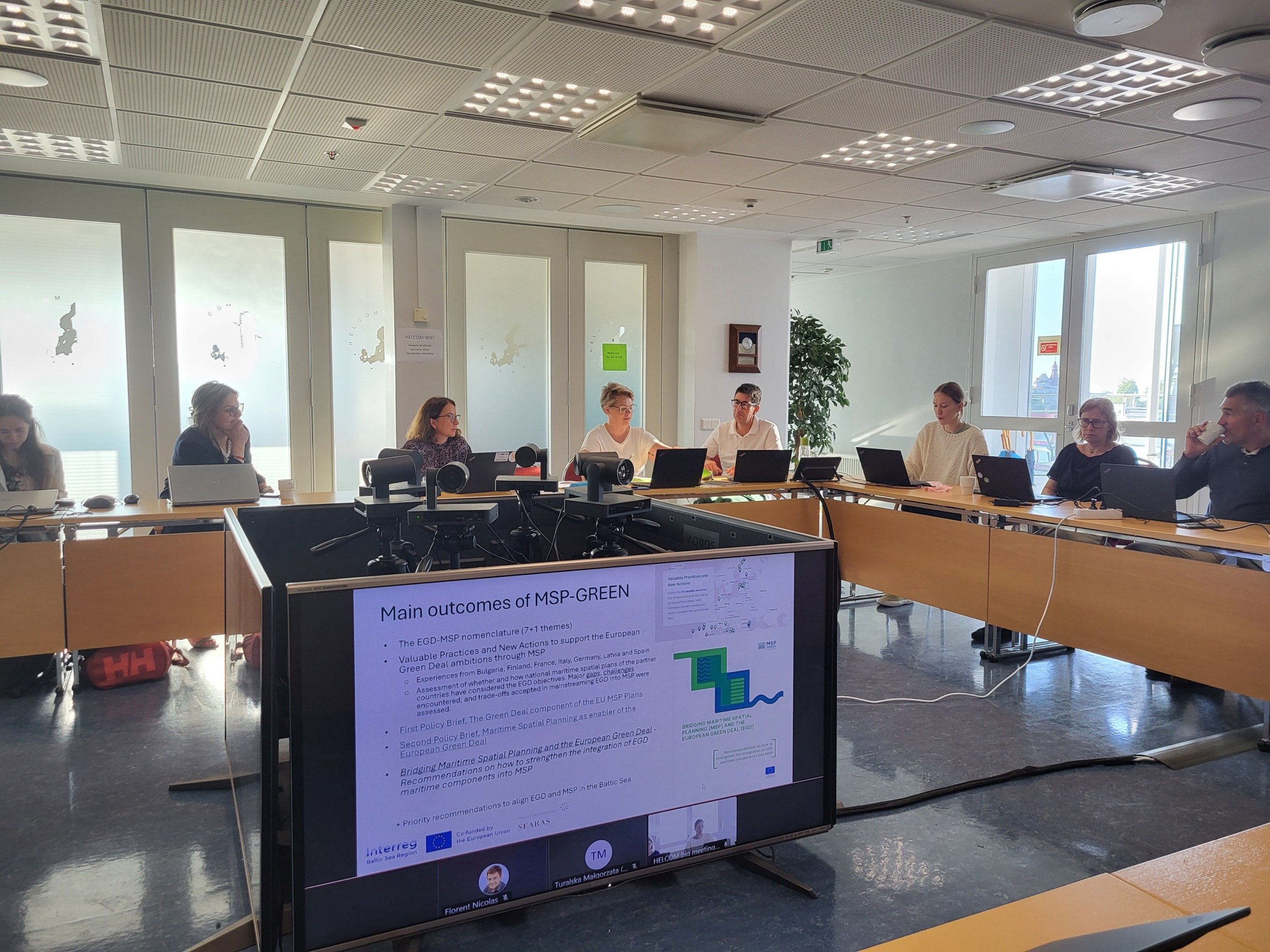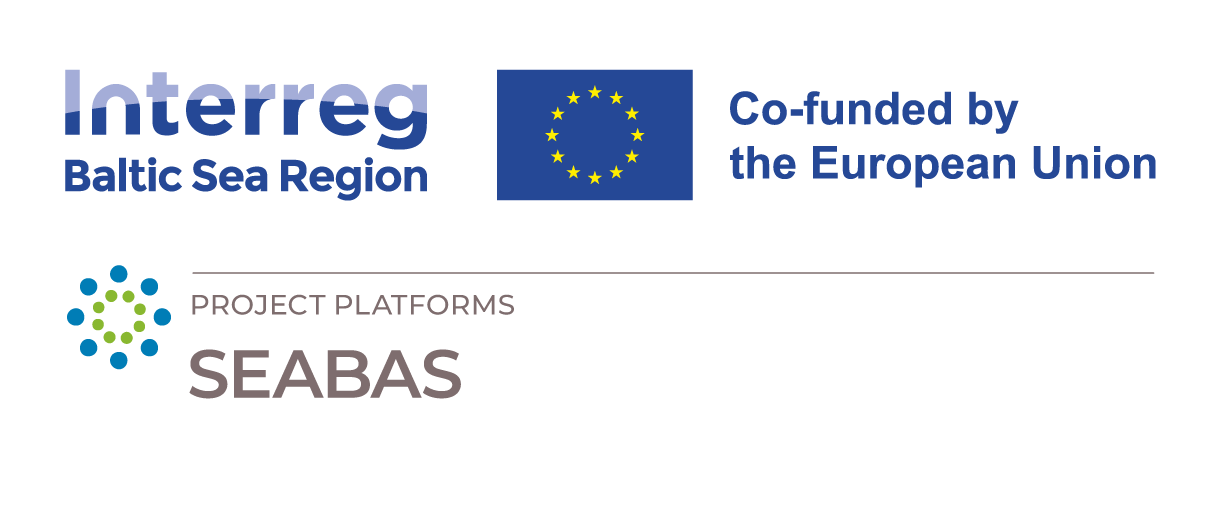The new SEABAS Project Platform supports Finnish MSP in Impact Assessment
The second round of maritime spatial planning is in full swing, and a strategic environmental assessment (SEA) is carried out in parallel with the planning work in accordance with the Finnish SOVA Act. The assessment process is supported by the new Interreg SEABAS Project Platform, which began officially in July 2025 and in which the Finnish maritime spatial planning coordination group is involved. The project creates joint guidelines and frameworks to support the environmental assessment of Maritime Spatial Plans in the Baltic Sea region.
In the currently ongoing revision round of Finland Maritime Spatial Plan, an impact assessment in accordance with the SOVA Act (Act 200/2005 on the environmental impact assessment of certain plans and programs by public authorities) is being carried out. The impact assessment will take into account the potentially significant environmental impacts of the revised maritime spatial plan at a strategic level. In addition to natural values, the assessment will consider human health and well-being, the landscape, and social impacts. It is essential that the assessment be integrated into the planning process so that it feeds into the weighing up of different planning solutions.
In early summer, the maritime spatial planning coordination group sent a preliminary notification in accordance with the Espoo Convention to other Baltic Sea countries regarding the revision of the plan and the organization of a transboundary consultation. More information on the matter is available here. The impact assessment prepared during the first round of maritime spatial planning can be found here.
The new SEABAS Project Platform brings an international perspective to the impact assessment
The Finnish maritime spatial planning will be supported in the upcoming impact assessment by the new SEABAS Project Platform (2025–2027), which began officially in July and is funded by Interreg Baltic Sea Region. The aim of the project platform is to create a common framework on conducting a strategic environmental assessment of maritime spatial plans in the Baltic Sea region, capitalizing on work done in previous projects. A key aspect in the project is to account for cross-border impacts and to cooperate closely with other Baltic Sea countries. One of the objectives of the project is to promote a measure outlined in HELCOM-Vasab’s Baltic Sea Region Maritime Spatial Planning Roadmap to create a common framework for strategic environmental assessment.

The SEABAS project’s (Strategic ecosystem-based planning for sustainable future of the Baltic Sea) kick-off seminar was held in Helsinki in early September. Partners from Finland, Estonia, Latvia, Poland, Germany, and Sweden gathered at the HELCOM premises. Project platforms bring together results from previous projects to capitalise on them and to create added value.
Assessing the cumulative impacts of different maritime sectors and related planning solutions is also part of the strategic environmental assessment process. The SEABAS project utilizes existing tools such as HELCOM’s SPIA and Navigator, created in the Interreg Baltic Sea2Land project, to develop a methodology for assessing the cumulative impacts of maritime spatial plans. The Finnish Maritime Spatial Planning Coordination Group is implementing a pilot to test both the guidelines for the SEA process and the methodology for cumulative impact assessment. The pilot will be directly linked to the ongoing update of the maritime spatial plan.
”This new project is starting at a particularly opportune time for us, as we are currently planning the implementation of the SEA process for the first time at this level,” says project planner Laura Pietilä.
Peer support for the piloting will also be provided during the project by Latvia’s maritime spatial planning, where work on amendments has also been launched. The parallel national pilots will provide an opportunity to compare and learn together. Close cooperation on maritime spatial planning in environmental matters is particularly important between the different Baltic Sea countries. The next steps in the work will be announced later, once the project is fully underway in the autumn.
The project is coordinated by the Baltic Marine Environment Protection Commission (HELCOM). For more information, you can visit the project website: SEABAS – Interreg Baltic Sea Region

Contact
Laura Pietilä
Project Planner, SEABAS
+358 40 482 8821




